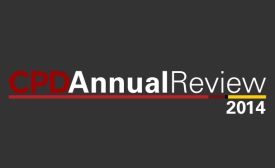united nations
The recent rise in global terrorism is alarming, but it also reaffirms the failure of our purely hard military approach to counter the phenomenon.
The 2014 CPD Annual Review demonstrates that although public diplomacy is present in every region of the world, it is predominantly in the northern hemisphere. North America is ranked the most active region in public diplomacy, with the United States contributing the most. Asia (Asia Pacific, Southeast Asia and Central Asia combined) comes in second, and Europe is third, with almost the same presence as Asia. As expected, China, Japan, and South Korea take the lead as the major actors in Asia Pacific. India is also very active in PD in South Asia.
As part of the CPD Annual Review process, in January we highlighted some of the year’s key public diplomacy moments in our Top 10 List of the most notable stories from 2014.
Launched in 2013, the CPD Annual Review was developed to serve as a guide to understanding the global landscape of public diplomacy, its ebbs and flows, its triumphs and its shortcomings.

Capturing the scope and scale of PD around the world through an analysis of English-language news stories from 2014.
Signaling a new diplomatic push to refurbish its battered image and win friends and influence nations, Pakistan is sending Maleeha Lodhi, a high-profile envoy, who has asserted that "her prime focus will be creating a clear line on Kashmir cause," to the United Nations.
An International joint statement released by the United Nations, the African Union, the European Union, IGAD, the UK and the US welcomed Parliament’s approval, and reiterated their call for Somalia’s leaders and institutions to work together to accelerate delivery of the milestones of the Federal Government’s ‘Vision 2016′. The diplomatic statement said, together with the New Deal Compact for Somalia, remains the guiding framework for engagement. The diplomatic statement added that it was important to preserve the Somalia unity and stability of the Federal Government of Somalia.
Ban Ki-moon’s second term as U.N. secretary general ends Dec. 31, 2016. To many, his choice in 2006 validated the soft bigotry of low expectations with respect to the world organization. Considering the structural constraints within which he must function, Ban’s record is not all that bad. He has led from the front on issues like promoting more women to senior positions, climate change, the responsibility to protect, and a development agenda to follow the Millennium Development Goals that expire this year.







